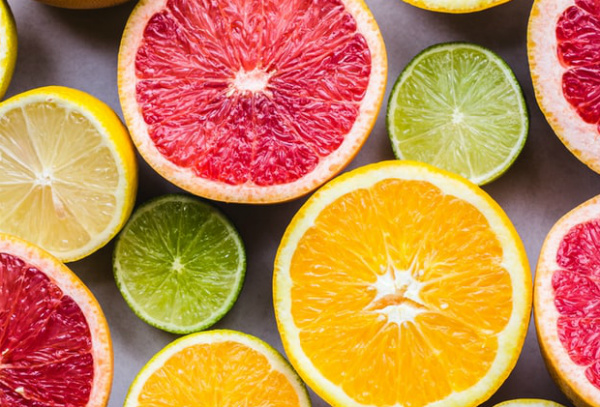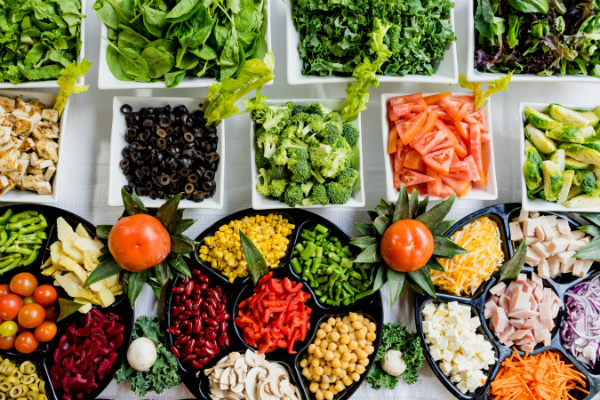 You might argue that your peri-workout nutrition is more important than any other aspect of your diet – to a degree. This is due to the way physically demanding exercise on the body requires specific nutrients to function at its peak.
You might argue that your peri-workout nutrition is more important than any other aspect of your diet – to a degree. This is due to the way physically demanding exercise on the body requires specific nutrients to function at its peak.
Get your pre, intra, and post-exercise nutrition and supplementation tailored exactly to your needs, then you’ll improve your performance and your recovery – even if your diet isn’t great throughout the rest of the week.
Table of Contents
Benefits of Tailored Peri-Workout Nutrition
There are many athletes who fall into the category of being deficient in nutrients such as iron, and carbohydrates. This is where the term “relevant energy deficiency in sport” a.k.a R.E.D.S is used, as it’s more common than most people think. And this is where knowing how to tailor your peri-workout nutrition comes in handy. (I)
Benefits of tailored Peri-Workout Nutrition:
- Enhanced performance
- Better muscle growth and repair
- Shorter recovery times
- Extended stamina
- Less bloating and stomach discomfort
- Deeper sleep and relaxation
- Balanced hormone levels
 By taking in the right foods before, during, and after you train, you can boost your athletic performance, extend your stamina and endurance, and shorten your muscle soreness by almost half in some cases – allowing you to recover faster and train more frequently.
By taking in the right foods before, during, and after you train, you can boost your athletic performance, extend your stamina and endurance, and shorten your muscle soreness by almost half in some cases – allowing you to recover faster and train more frequently.Use this guide below to get you started to a successful peri-workout nutrition plan:
What is Peri-Workout Nutrition Explained?
In a nutshell, per-workout nutrition is a term used to describe nutrition surrounding exercise (supplements and foods). For example; your pre-workout meal, foods and supplements during exercise, and finally, your post-workout recovery meal.
There are different foods and supplements for each meal that will help your body to function at its best. Some of these benefits include; reduced cramping, easier digestion and less bloating, and better nutrient delivery and blood-flow into your working muscle.
Below I’ve listed the best foods to eat for peri-workout nutrition, along with the best supplements. The number of foods you eat will vary from person to person, and from sport to sport:
Pre-Workout Meals
For both strength training and endurance athletes, eating 1-4 hours before you exercise with foods that contain low fat, high to moderate carbohydrates, and moderate protein is best for pre-workout nutrition.

Foods
- Proteins: Egg whites, Chicken breast, Quinoa, Whey/Rice protein, Fish
- Carbohydrates: Brown rice, Pasta, Couscous, Sweet/White potato, Oats, Bananas, Strawberries, Cherries
- Vegetables: Beetroot, Red Cabbage, Salad, Onion, Garlic, Ginger, Tomatoes
Pre-Workout Supplements
- Acetyl-l-carnitine: Helps to speed up the use of fats for fuel – ideal for early morning fasted training.
- Carnosine: Improves oxygen and blood delivery into working muscles.
- Creatine: Increases strength, stamina, and energy supply (ATP) ideal for explosive bursts of energy.
- Citrulline: Send more oxygen, blood, and nutrients around the body – it also increases levels of growth hormone.
- Leucine: A master muscle-building amino acid that helps your muscles to remain strong – repairing new muscle fibres quickly.
- Boron: This mineral will improve hormone levels, bone health, and mineral retention.
- Glucose/Carbohydrates: For a fast way to get glucose into your muscles pre-workout, a glucose supplement is a convenient way to do this.
Intra-Workout Meals
Endurance athletes will benefit from eating higher glycemic carbohydrates intra workout, and strength trainers will benefit more from eating a mixture of low/high glycemic carbs along with an easy to digest protein to help muscle growth and recovery.

Foods
- Proteins: Whey/Rice Protein, Egg Whites
- Carbohydrates: Fruits, Pasta, White Rice, Sweet or White Potato (without the skin)
Intra-Workout Supplements
- Coconut: Coconut contains potassium, which helps to restore electrolyte levels – aiding in better muscle contractions.
- Himalayan Salt: Himalayan salt is also another mineral that improves muscle response to exercise, whilst assisting in recovery and nutrient delivery.
- Branch Chain Amino Acids: BCAA’s are important for muscle and cellular growth. they also increase strength, energy supply, whilst preventing muscle wastage during exercise.
Post-Workout Meals
Post-workout nutrition stays the same across the board for most athletes. Eating higher amounts of carbohydrates with moderate to high protein (sport-specific) with low fat will help nutrient absorption and delivery to assist in muscle repair and recovery.

Foods
- Proteins: Beef Steak, Egg whites, Chicken breast, Quinoa, Whey/Rice protein, Fish
- Carbohydrates: Brown rice, Pasta, Couscous, Sweet/White potato, Oats, Bananas, Strawberries, Cherries
- Vegetables: Beetroot, Red Cabbage, Salad, Onion, Garlic, Ginger, Tomatoes, Broccoli, Green Beans
Post-Workout Supplements
- Glucose/Carbohydrates: Just like with your pre-workout nutrition, getting glucose into your muscles post-workout as quickly as possible is a must for enhanced recovery.
- Caffeine: Using caffeine post-exercise increases the rate of glycogen re-synthesis.
- Theanine: Theanine increases mental alertness after exercise – ideal to beat the afternoon slump.
- Ashwagandha: This popular adaptogen has been used for thousands of years. It increases testosterone levels, strength, and recovery. It also helps to lower stress levels post-exercise.
- Piperine: Piperine, also known as black pepper, increases nutrient delivery and absorption in the body.
- B-Vitamin Complex: B-vitamins help to create energy from the foods you eat – the type of energy that’s needed to heal damaged muscles, along with energy for the mind.
Sport Nutrition Expert Recommendation?
 Like I’ve already mentioned, peri-workout nutrition, in some cases, is more important than your daily/weekly diet.
Like I’ve already mentioned, peri-workout nutrition, in some cases, is more important than your daily/weekly diet.
If you make good food choices throughout the week and pay close attention to your peri-workout sports nutrition, you’ll soon notice better results.
Just remember that we’re all different. From our lean body mass, our metabolism, and the sports we take part – which will determine the food choices you make.
If you follow my advice laid out in this article, along with my supplement recommendations, then you’ll soon see better results.
To quickly summarise, if you start writing down your peri-workout nutrition, whilst taking note of how your body responds, then you can tailor what you need from there. That way, peri-workout nutrition will become second nature, and with it, enhanced performance, recovery, and faster body composition changes.
Resources:
(I) Burke, Louise M., and John A. Hawley. “Swifter, Higher, Stronger: What’s on the Menu?” Science, American Association for the Advancement of Science, 16 Nov. 2018. (source)

Leave a Reply